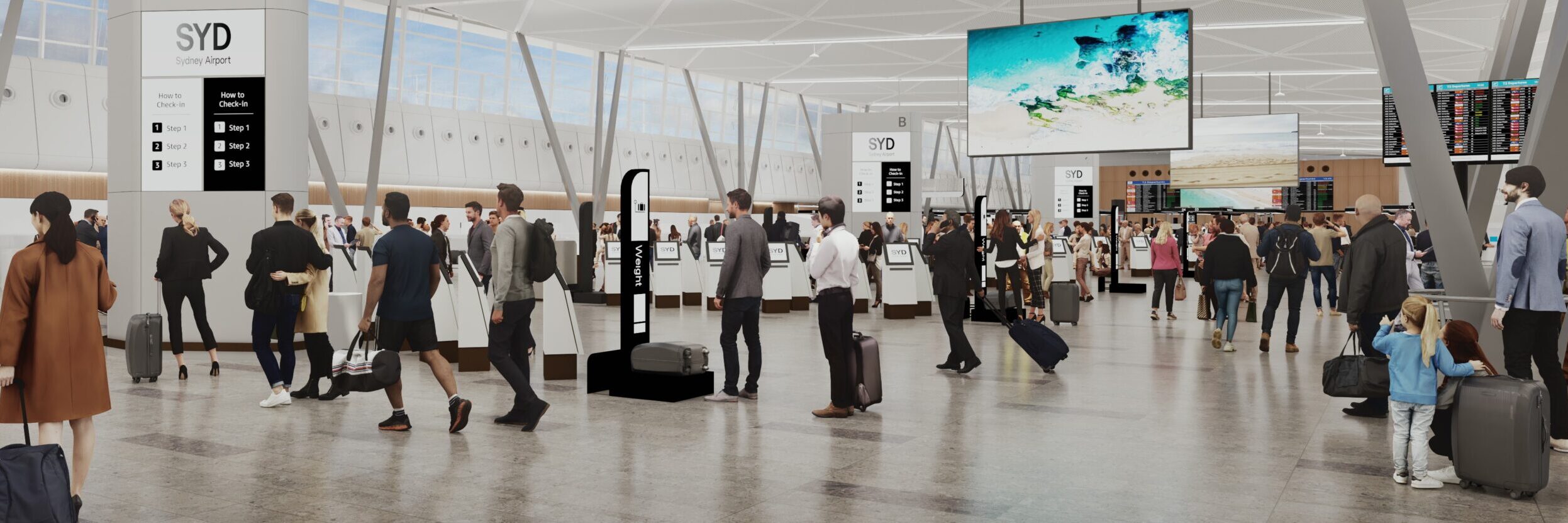A computer rendering of what the new T2 domestic terminal will look like. Image: Sydney Airport
Sydney Airport is to spend $200m on modernising its T2 Domestic terminal, the first major upgrade in more than 30 years.
The airport says the upgrade will feature streamlined check-in, faster security, and updated facilities with a new layout, new bag drop technology and next-gen security technology to speed up departures.
There will be more self-service kiosks with luggage processing due to be bolstered from 1500 bags an hour during peak times to 1800 bags by 2026.
The terminal will feature next-generation security technology and scanners across seven processing lanes totalling 26 metres. These will allow passengers to leave items like laptops and liquids in their carry-on luggage, allowing each lane to process 500 passengers an hour, up 113 per cent on current 235 passengers an hour.
Airport CEO Scott Charlton believes the changes will make the T2 terminal one of the fastest and most efficient in the country.
“These upgrades will not only transform security performance but will also support future demand, ensuring that Australia’s busiest airport terminal can accommodate the significant growth in passenger numbers we’re forecasting,” he says.
“These significant upgrades build on a series of improvements made over the past 12 months at T2, including the opening of the first domestic airport department store in December 2023, new food, beverage and retail offerings …”
Charlton acknowledged that the works would disrupt travellers but asked them for their patience with the T2 terminal to remain operational.
In the T1 international terminal, a major upgrade to security screening is set for completion by late 2025.
In line with government mandates, 15 new screening lanes with advanced CT scanning technology will be introduced, allowing passengers to leave liquids and aerosols in their hand luggage.
This upgrade should increase screening capacity by nearly 30 per cent and boosting passenger processing from 4500 people an hour to 5850 passengers.
A reorientation of the departures security layout will relocate security screening ahead of passport control.
The airport will install more E-Gate kiosks, which the Australian Border Force will operate, with seven departure gates.





